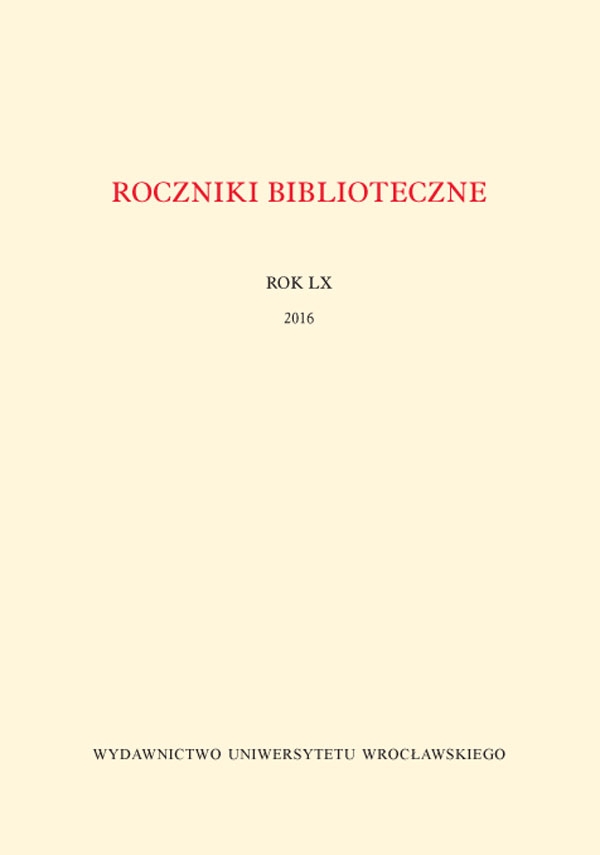

Articles and materials

RESEARCH INTO OCCASIONAL DAILIES IN POLAND AFTER 2008
In recent years scholars have become increasingly drawn to publications documenting the life of society. Manifestations of this growing interest include an international conference devoted to such publications and organised in October 2004 by the Institute of Library and Information Science, University of Wrocław. The participants discussed the subject of occasional dailies, unique documents somewhere between non-periodical and serial publications. Numerous papers devoted to such publications were written by Małgorzata Korczyńska-Derkacz, who in 2008 presented the state of research into occasional dailies and carried out their multifaceted assessment as source materials, using the data from the Central Catalogue of Polish Periodicals. The present paper complements and continues the research carried out earlier.
The topics most frequently tackled by scholars include those devoted to specific titles, historical periods occasional dailies in the inter-war period, places of publication Lviv, Kraków, publishing institution or milieu firefighters, students, scouts, ethnic groups Jewish dailies. Few scholars have tackled dailies from the point of view of their untypical editorial and formal features periodical or non-periodical publication and the related problems with their formal and substantive description. The fact that occasional dailies have been incorporated into the collections of digital libraries and the growing number of bibliographic compilations, including Volume 16 of the Polish Bibliography 1901–1939 devoted entirely to such publications, stimulate the interest of historians of the press, linguists, sociologists, ethnographers, culture scholars, historians of social movements, politics and economy, historians studying the customs and traditions of various ethnic and professional groups, localities and education. They appreciate such publications as a unique source of historical and factual information lists of people, tables and plates, photographs, statutes etc..